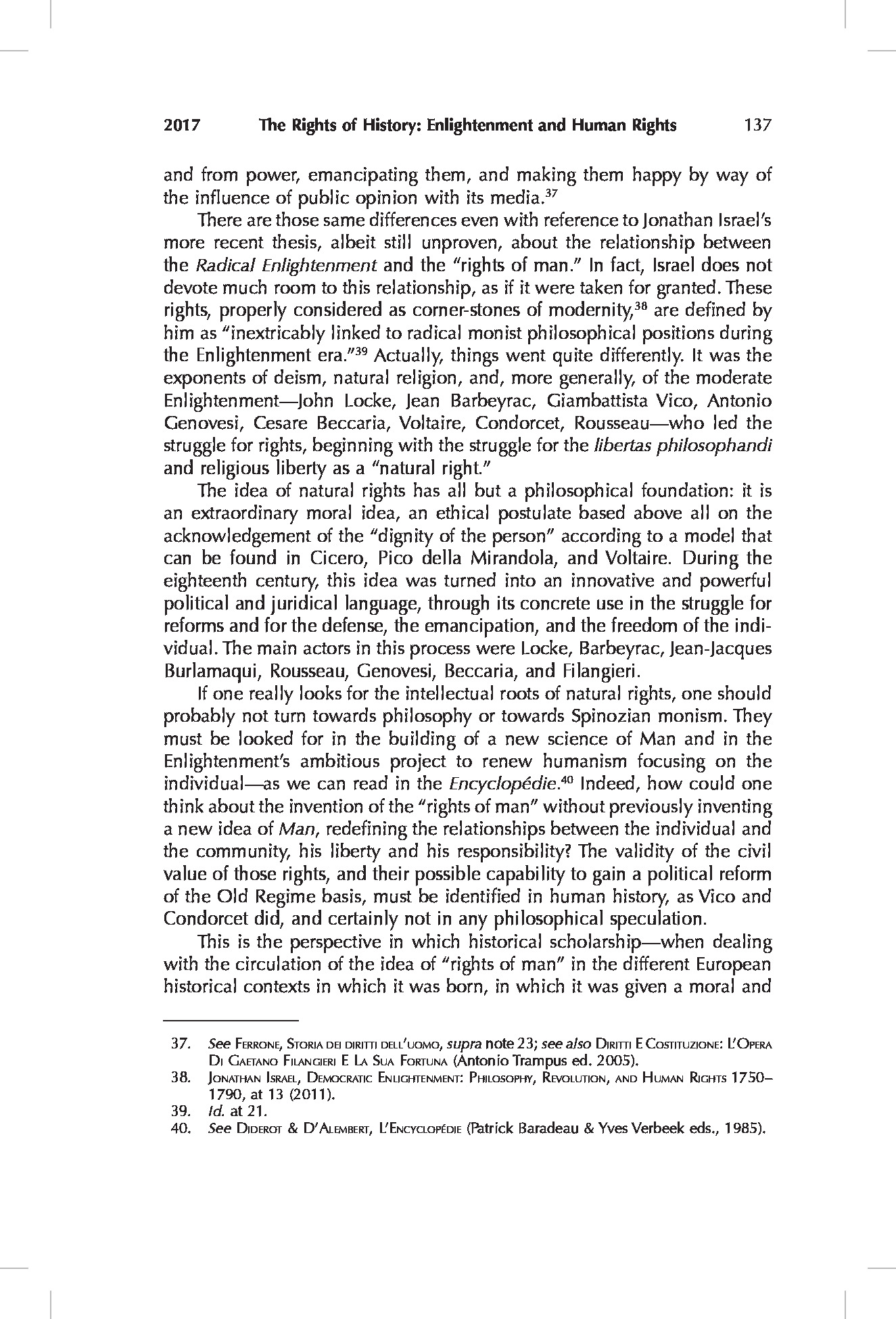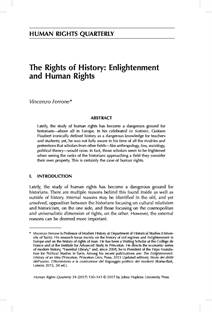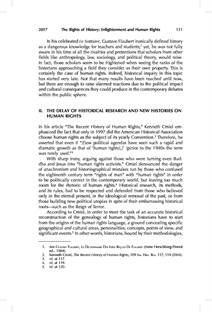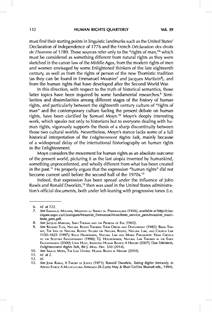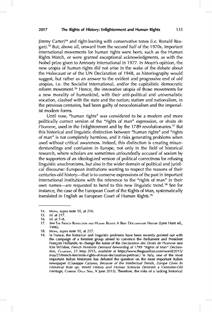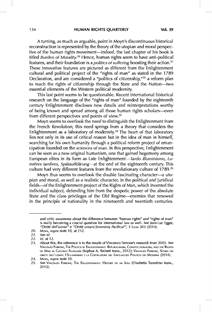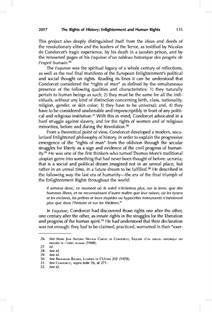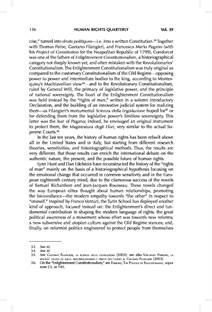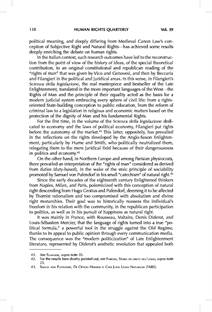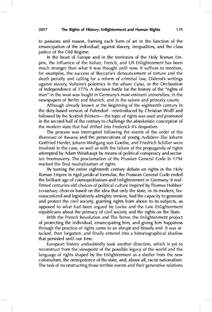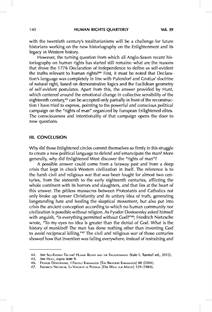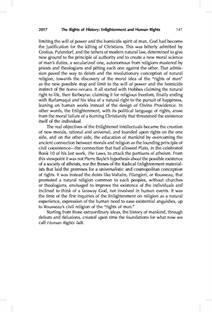2017
The Rights of History: Enlightenment and Human Rights
137
and from power, emancipating them, and making them happy by way of
37
the influence of public opinion with its media.
There are those same differences even with reference to Jonathan Israel’s
more recent thesis, albeit still unproven, about the relationship between
the Radical Enlightenment and the “rights of man.” In fact, Israel does not
devote much room to this relationship, as if it were taken for granted. These
38
rights, properly considered as corner-stones of modernity, are defined by
him as “inextricably linked to radical monist philosophical positions during
39
the Enlightenment era.” Actually, things went quite differently. It was the
exponents of deism, natural religion, and, more generally, of the moderate
Enlightenment—John Locke, Jean Barbeyrac, Giambattista Vico, Antonio
Genovesi, Cesare Beccaria, Voltaire, Condorcet, Rousseau—who led the
struggle for rights, beginning with the struggle for the libertas philosophandi
and religious liberty as a “natural right.”
The idea of natural rights has all but a philosophical foundation: it is
an extraordinary moral idea, an ethical postulate based above all on the
acknowledgement of the “dignity of the person” according to a model that
can be found in Cicero, Pico della Mirandola, and Voltaire. During the
eighteenth century, this idea was turned into an innovative and powerful
political and juridical language, through its concrete use in the struggle for
reforms and for the defense, the emancipation, and the freedom of the indi-
vidual. The main actors in this process were Locke, Barbeyrac, Jean-Jacques
Burlamaqui, Rousseau, Genovesi, Beccaria, and Filangieri.
If one really looks for the intellectual roots of natural rights, one should
probably not turn towards philosophy or towards Spinozian monism. They
must be looked for in the building of a new science of Man and in the
Enlightenment’s ambitious project to renew humanism focusing on the
40
individual—as we can read in the Encyclopédie. Indeed, how could one
think about the invention of the “rights of man” without previously inventing
a new idea of Man, redefining the relationships between the individual and
the community, his liberty and his responsibility? The validity of the civil
value of those rights, and their possible capability to gain a political reform
of the Old Regime basis, must be identified in human history, as Vico and
Condorcet did, and certainly not in any philosophical speculation.
This is the perspective in which historical scholarship—when dealing
with the circulation of the idea of “rights of man” in the different European
historical contexts in which it was born, in which it was given a moral and
37. See Ferrone, storia Dei Diritti Dell’uomo, supra note 23; see also Diritti e costituzione: l’oPera
Di Gaetano FilanGieri e la sua Fortuna (Antonio Trampus ed. 2005).
38. JonatHan israel, Democratic enliGHtenment: PHilosoPHy, revolution, anD Human riGHts 1750–
1790, at 13 (2011).
39. Id. at 21.
40. See DiDerot & D’alembert, l’encycloPéDie (Patrick Baradeau & Yves Verbeek eds., 1985).
Dettagli
- Page N°:8
- Publication:
- Author:Vincenzo Ferrone

